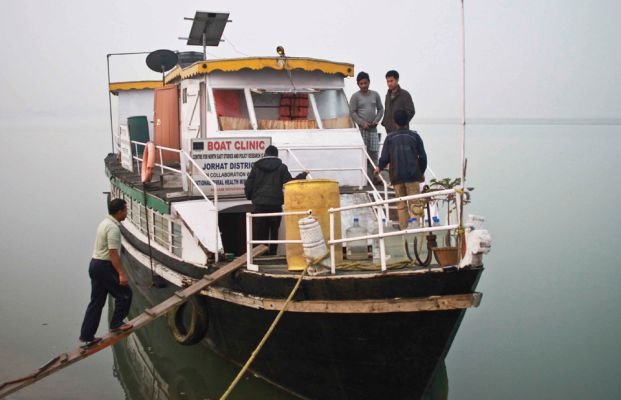In India, about 55 percent of households depend on the public health system to meet their healthcare needs.
But as of 2015 nearly 35 million people in rural areas relied on local health centres without an electricity supply, according to government data. One in every two primary health centres has no electricity or suffers from power outages.
For the residents of Majuli, the world’s biggest river island, and other smaller islands dotting the river, access to healthcare has been an even bigger challenge.
Health centres without doctors, infrequent ferries to the mainland and the remoteness of some islands have meant premature deaths, prolonged illness and challenges in meeting vaccination targets
The S. B. Nahor, a boat offering healthcare services that operates on the Brahmaputra river in the northeast Indian state of Assam has for the first time brought a dentist to the doorstep of tens of thousands of people who live on flood-prone river islands in Assam.
And by going solar, it has given remote healthcare a much-needed green shot in the arm. It is one of the first of 15 Indian boat clinics to go solar.
Off-grid solar systems like that on the boat are a growing source of power in India, particularly in rural areas, but they still provide less than a tenth of the electricity generated by grid-connected solar plants, experts say.
After being fitted in May, the S. B. Nahor’s 5-kilowatt solar system has enabled much more than dental equipment to run.
Since replacing its noisy, polluting diesel generator as the main source of power, the boat has installed a refrigerator to store vaccines, speeded up laboratory tests and started making announcements via loudspeaker. Most importantly, it is now lit up at night.






